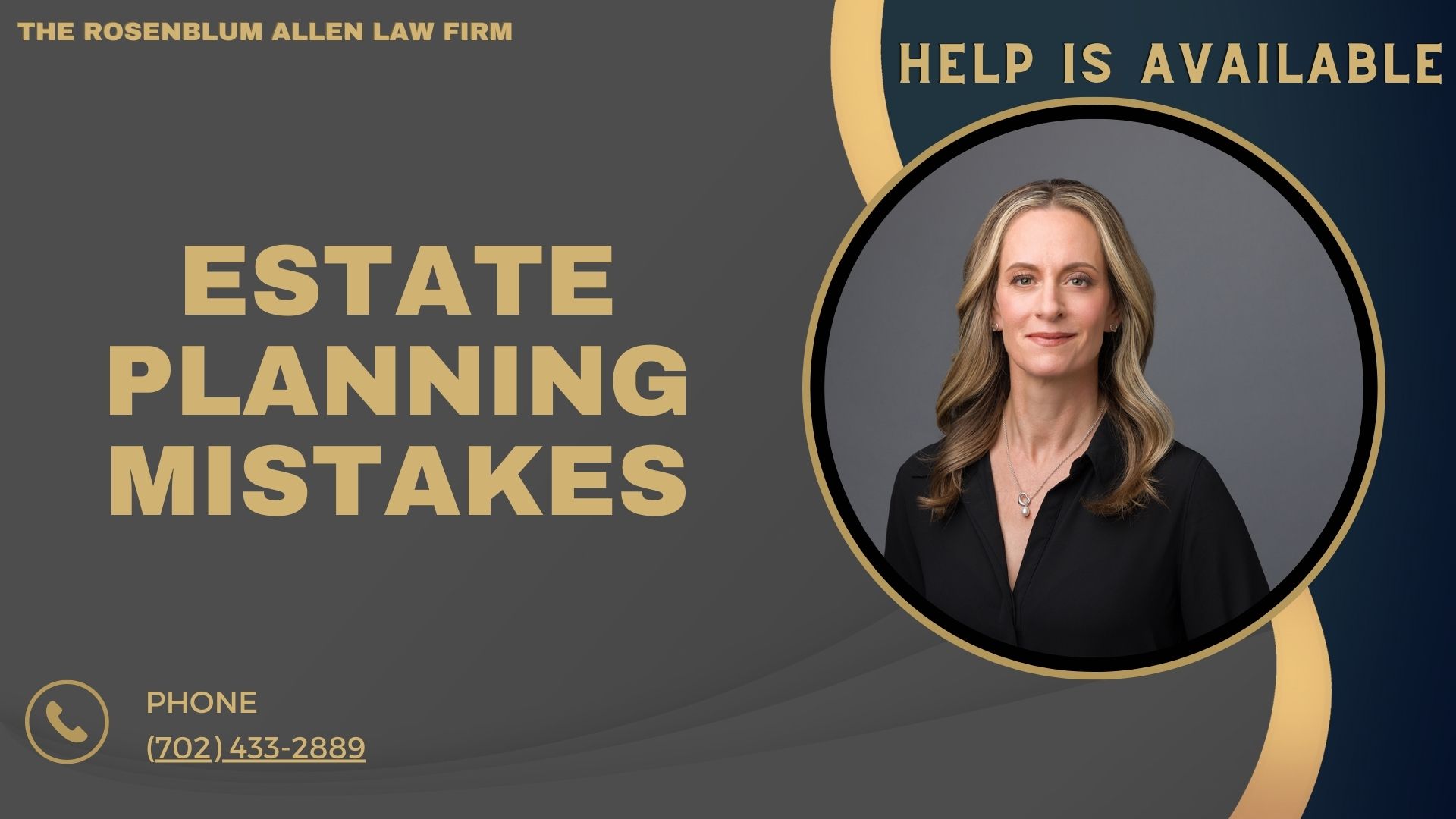Understanding Estate Planning
Estate planning isn’t just for the rich and famous. It’s for anyone who wants to have a say in what happens to their assets and loved ones after they’re gone. Think of estate planning as creating a roadmap for your family’s future. It involves:- Writing a will
- Setting up trusts
- Designating beneficiaries
- Establishing powers of attorney
- Creating healthcare directives
Top Estate Planning Mistakes
Even with the best intentions, many people stumble regarding estate planning. Let’s dive into the most common mistakes and how to avoid them.Failing to Create an Estate Plan
The biggest mistake is not having a plan at all. Many people think they don’t have enough assets to warrant an estate plan, but that’s simply not true.Consequences of Dying Intestate
When you die without a will (intestate), the state decides how to distribute your assets. This can lead to:- Lengthy probate processes
- Increased costs
- Family disputes
- Assets going to unintended beneficiaries
Impact on Family and Beneficiaries
Imagine your loved ones dealing with grief while also navigating complex legal processes. Without an estate plan, you’re leaving them vulnerable to:- Emotional stress
- Financial uncertainty
- Potential family conflicts
Neglecting to Update Estate Plans
Life changes, and your estate plan should, too. Many people create a plan and then forget about it, which can be just as problematic as having no plan at all.
Life Events Requiring Updates
Review and update your estate plan when:- You get married or divorced
- Do you have children or grandchildren
- You buy or sell significant assets
- Tax laws change
- A beneficiary or executor passes away
Overlooking Digital Assets
In our digital age, we often forget about our online presence when estate planning. But digital assets can be just as valuable as physical ones.Importance of Digital Estate Planning
Think about all your online accounts:- Social media profiles
- Email accounts
- Online banking
- Digital photo albums
- Streaming services
- Online businesses
Securing Online Accounts and Cryptocurrencies
Cryptocurrencies deserve special attention. Unlike traditional assets, they’re not controlled by banks or governments. If you don’t leave clear instructions, your crypto investments could vanish into the digital ether. Consider creating a “digital asset inventory” with:- Account names and URLs
- Usernames (but not passwords)
- Instructions for accessing passwords securely
- Directions on what to do with each account
Improper Beneficiary Designations
Beneficiary designations can trump your will. It’s a common misconception that your will controls everything. However, for certain assets, beneficiary forms take precedence.Conflicts Between Will and Beneficiary Forms
Imagine this scenario: Your will leaves everything to your children, but your life insurance policy still lists your ex-spouse as the beneficiary. Guess who gets the insurance payout? That’s right, your ex. Assets often controlled by beneficiary designations include:- Life insurance policies
- Retirement accounts (401(k)s, IRAs)
- Transfer-on-death bank accounts
- Some types of real estate
Tax Implications of Beneficiary Choices
Your choice of beneficiary can have significant tax consequences. For example, leaving a traditional IRA to your spouse allows them to treat it as their own, potentially deferring taxes. However, leaving it to a non-spouse might trigger immediate tax obligations. Consider consulting with a tax professional to understand the implications of your beneficiary choices.
Ignoring Tax Implications
Nobody likes thinking about taxes, especially when planning for their death. However, ignoring tax implications can significantly reduce what you leave behind.Gift Tax Planning
Annual gifting can be a powerful tool for reducing your taxable estate. In 2024, you can give up to $18,000 per person per year without triggering gift tax reporting. Remember, strategic gifting isn’t just about tax savings. It’s also about the joy of seeing your loved ones benefit from your generosity while you’re still alive.Failing to Plan for Incapacity
We often focus on what happens after we’re gone, but what if you cannot make decisions while still alive? This is where incapacity planning comes in.Importance of Power of Attorney
A power of attorney (POA) is like a safety net for your life decisions. If you can’t, it allows someone you trust to step in and manage your affairs. There are two main types:- Financial POA: Handles your money matters
- Healthcare POA: Makes medical decisions on your behalf
Healthcare Directives and Living Wills
Have you ever thought about what kind of medical care you’d want if you couldn’t speak for yourself? That’s where healthcare directives come in. A living will spells out your wishes for end-of-life care. It answers questions like:- Do you want to be kept on life support?
- Would you prefer to die at home or in a hospital?
- What are your views on pain management?
Overlooking Long-Term Care Planning
Let’s face it: nobody likes to think about needing long-term care. But ignoring this possibility can devastate your estate and burden your family.Medicaid Planning Considerations
Did you know that Medicare doesn’t cover most long-term care costs? Many people rely on Medicaid, but it comes with strict eligibility requirements. Consider this: Medicaid has a five-year “look-back” period. Any assets you’ve given away or sold below market value in the five years before applying can result in penalties. That’s why it’s crucial to start Medicaid planning early. Strategies might include:- Creating irrevocable trusts
- Spending down assets strategically
- Making allowed transfers to family members

Long-Term Care Insurance Options
Long-term care insurance can be a lifesaver, but it’s not for everyone. Here’s a quick pros and cons list: Pros:- Protects your assets
- It gives you more care options
- Reduces burden on family
- Can be expensive
- Premiums may increase
- It might never be used
DIY Estate Planning Pitfalls
In our do-it-yourself world, grabbing an online form and calling it a day is tempting. But when it comes to estate planning, this can be a costly mistake.Risks of Using Generic Online Forms
Online forms might seem like a quick fix, but they often create more problems than they solve. Here’s why:- They may not be state-specific
- They can’t account for complex family situations
- They might use outdated language or laws
- They don’t provide personalized advice
Importance of Professional Guidance
Estate planning isn’t just about filling in the blanks. It’s about understanding your unique situation and goals. A professional can help you:- Navigate complex tax laws
- Plan for blended families
- Protect a child with special needs
- Structure your estate to avoid family conflicts
Neglecting to Communicate with Heirs
You’ve done the hard work of creating an estate plan. But have you told anyone about it? Many people keep their plans secret, thinking it will avoid conflict. In reality, it often does the opposite.Family Conflicts and Misunderstandings
Imagine this: You’ve left your vacation home to one child, thinking they’d love it most. But your other child has always dreamed of owning it. Without communication, you’re setting the stage for a family feud. Familiar sources of conflict include:- Unequal distributions
- Surprise inheritances (or disinheritances)
- Unexpected roles (like executor or trustee)
- Family heirlooms with sentimental value

Importance of Clear Estate Instructions
Clear communication can prevent a world of hurt. Consider having a family meeting to discuss your plans. It doesn’t mean you need to reveal every detail, but you can:- Explain your overall goals
- Discuss any unequal distributions and why
- Prepare heirs for their roles and responsibilities
- Ask for input on sentimental items
Failing to Fund Trusts Properly
Trusts can be powerful estate planning tools. But they’re useless if you don’t fund them adequately. It’s like buying a safe but never putting anything in it.Consequences of Unfunded Trusts
An unfunded trust is just an empty shell. Here’s what can happen:- Assets not in the trust may go through probate
- Your intended beneficiaries might not receive what you planned
- Tax benefits of the trust may be lost
- The trust’s purpose (like avoiding probate or providing for a special needs child) isn’t achieved

Conclusion
Estate planning isn’t a one-and-done task. It’s an ongoing process that requires regular review and updates. By avoiding these common mistakes, you’re not just protecting your assets. You’re providing peace of mind for yourself and your loved ones.
Remember:
- Start planning early
- Communicate with your family
- Seek professional help when needed
- Review and update regularly
Your estate plan is your legacy. Make it positive by avoiding these pitfalls and creating a solid plan that reflects your wishes.
Don’t wait. The best time to start your estate planning is now. Your future self (and your loved ones) will thank you.

Frequently Asked Questions
How often should I review my estate plan?
It’s wise to review your estate plan every 3-5 years or after any significant life event such as marriage, divorce, birth of a child, or substantial changes in your financial situation. Regular reviews ensure your plan remains current and aligned with your wishes.
Can I change my will or trust after it’s been created?
Yes, you can generally modify your will or revocable trust at any time if you’re mentally competent. You can create a codicil (an amendment) or draft a new will for wills. Trusts can usually be amended or restated. However, irrevocable trusts are more difficult to change.
What’s the difference between a will and a trust?
A will is a document that specifies how you want your assets distributed after death and goes through probate. A trust is a legal entity that can hold and manage assets during your lifetime and after death, often avoiding probate. Trusts generally offer more control and privacy than wills.
Do I need an estate plan if I don’t have many assets?
Yes, everyone can benefit from an estate plan. Even with few assets, you’ll want to specify who receives them, name guardians for minor children, and create healthcare directives. An estate plan isn’t just about money; it’s about making your wishes known.
What happens if I die without an estate plan in Las Vegas?
If you die without an estate plan (intestate) in Las Vegas, Nevada, state law will determine how your assets are distributed. This may not align with your wishes, leading to family disputes and unnecessary costs. Additionally, the court will decide guardianship for any minor children.
Can I create my estate plan without a lawyer?
While it’s possible to create essential estate planning documents yourself, it’s generally not recommended. Estate laws are complex and vary by state. A qualified attorney can ensure your documents are legally valid, comprehensive, and truly reflect your wishes while minimizing potential tax implications.
How does divorce affect my estate plan?
Divorce can significantly impact your estate plan. In many states, divorce automatically revokes any provisions in your will relating to your ex-spouse. However, updating your entire estate plan after a divorce is crucial, including beneficiary designations on life insurance policies and retirement accounts.
What’s the role of an executor in estate planning?
An executor, named in your will, is responsible for managing your estate after your death. Their duties include:
- Gathering and valuing your assets
- Paying debts and taxes
- Distributing assets to beneficiaries as specified in your will
- Representing the estate in legal matters
Choose someone trustworthy and capable of handling these responsibilities.
How can I protect my digital assets in my estate plan?
To protect digital assets:
- Create an inventory of your digital assets
- Provide instructions for accessing these assets
- Include digital assets in your will or trust
- Consider using a digital estate planning service
- Regularly update your digital asset plan
Remember, some online services have policies for handling deceased users’ accounts.
What’s the difference between a healthcare proxy and a living will?
A healthcare proxy (also called a healthcare power of attorney) designates someone to make medical decisions if you’re incapacitated. A living will specifies your wishes for end-of-life care, such as whether you want to be kept on life support. These documents work together to ensure your healthcare wishes are respected.

Glossary
Beneficiary: A person or entity designated to receive assets or benefits from an estate, trust, or financial account.
Codicil: A legal document that amends, rather than replaces, a previously executed will.
Cryptocurrency: A digital or virtual currency that uses cryptography for security, operating independently of a central bank.
Digital Assets: Any content, accounts, or files stored or used online or on digital devices.
Estate: The total of all possessions owned by an individual at death, including real estate, personal property, and intangible assets.
Estate Tax: A tax levied on the transfer of a deceased person’s estate.
Executor: The person named in a will to manage the estate, pay debts, and distribute property as specified.
Gift Tax: A federal tax applied to an individual who gives money or property to another person without receiving something of equal value in return.
Healthcare Directive: A legal document that specifies a person’s wishes for medical treatment if they become incapacitated.
Intestate: The condition of dying without a valid will in place.
Irrevocable Trust: A trust that cannot be modified, amended, or terminated without the beneficiary’s permission.
Living Will: A written statement detailing a person’s desires regarding their medical treatment in circumstances in which they can no longer express informed consent.
Medicaid: A joint federal and state program that provides health coverage to eligible low-income individuals.
Power of Attorney (POA): A legal document giving one person (the agent) the power to act for another person (the principal).
Probate: The legal process of administering a deceased person’s estate, including validating their will if one exists.
Revocable Trust: A trust that the grantor can alter or cancel during their lifetime.
Testator: The person who creates and executes a will.
Transfer-on-Death (TOD) Account: An account where the assets are automatically transferred to a designated beneficiary upon the account owner’s death.
Trust: A fiduciary arrangement allowing a third party, or trustee, to hold assets on behalf of a beneficiary or beneficiary.
Trustee: An individual or entity appointed to hold and manage assets for the benefit of another.
Will: A legal document communicating a person’s final wishes about possessions and dependents after death.

Further Reading
Our esteemed lead attorney, Molly Rosenblum, Esq., has diligently prepared a collection of valuable resources to assist you in your estate planning needs. These resources, available on the Rosenblum Law website, are expertly designed to guide you through the intricacies of estate planning, offering you support and clarity in your planning process. Here’s a summary of these invaluable resources:
Las Vegas Estate Planning Attorney: Explore a comprehensive guide that provides effective knowledge and insights into estate planning specific to Las Vegas. Explore the guide.
Las Vegas Trust Attorney: Gain specialized guidance on trust formation and management, ensuring your assets are handled according to your intentions. Learn more.
Tips On Estate Planning: Find practical tips and strategies to streamline your estate planning process, ensuring a thorough and effective plan. Read the tips.
Estate Planning Checklist: Utilize this comprehensive checklist to ensure all critical steps in your estate planning are covered. Check your progress.
Making a Will: Understand the importance and process of making a will, a fundamental component of estate planning. Start drafting your will.
Estate Planning Services: Explore the range of estate planning services offered, tailored to meet your unique needs and circumstances. View the services.
Estate Planning Probate: Delve into insights about the probate process and how effective estate planning can simplify or circumvent this often complex procedure. Understand probate processes.
Molly Rosenblum, Esq. is committed to providing you with the resources and knowledge necessary for successful estate planning. These resources are designed to empower you with the information and tools needed to make informed decisions about your estate. We encourage you to utilize these resources to ensure your estate planning is as comprehensive and informed as possible.

Offsite Resources You May Find Helpful
Nevada Legal Services – Estate Planning: This non-profit organization offers free legal services to eligible low-income residents and seniors in Nevada, including assistance with estate planning.
American Bar Association – Estate Planning FAQs: This resource provides a comprehensive set of FAQs that address many of the common questions and concerns about estate planning.
Internal Revenue Service – Estate and Gift Taxes: The IRS’s official page provides information on estate and gift taxes, which could be a crucial aspect of estate planning.
Investopedia – Estate Planning Basics: Investopedia offers a basic guide to estate planning, including an explanation of key terms and concepts.
Nolo – Estate Planning Basics: Nolo, a well-known resource for legal information, provides a comprehensive overview of estate planning, including how to get started and common pitfalls to avoid.

What Next?
Estate planning mistakes can hurt your future.
If you’re hailing from Nevada, The Rosenblum Allen Law Firm is here to help end the headache and hassle of planning your estate.
With our experienced Las Vegas Estate Planning Attorneys, you’ll know that your estate will be organized and secure.
Don’t let these mistakes cause unnecessary hardship: call (702) 433-2889 today and get the peace of mind you deserve.



